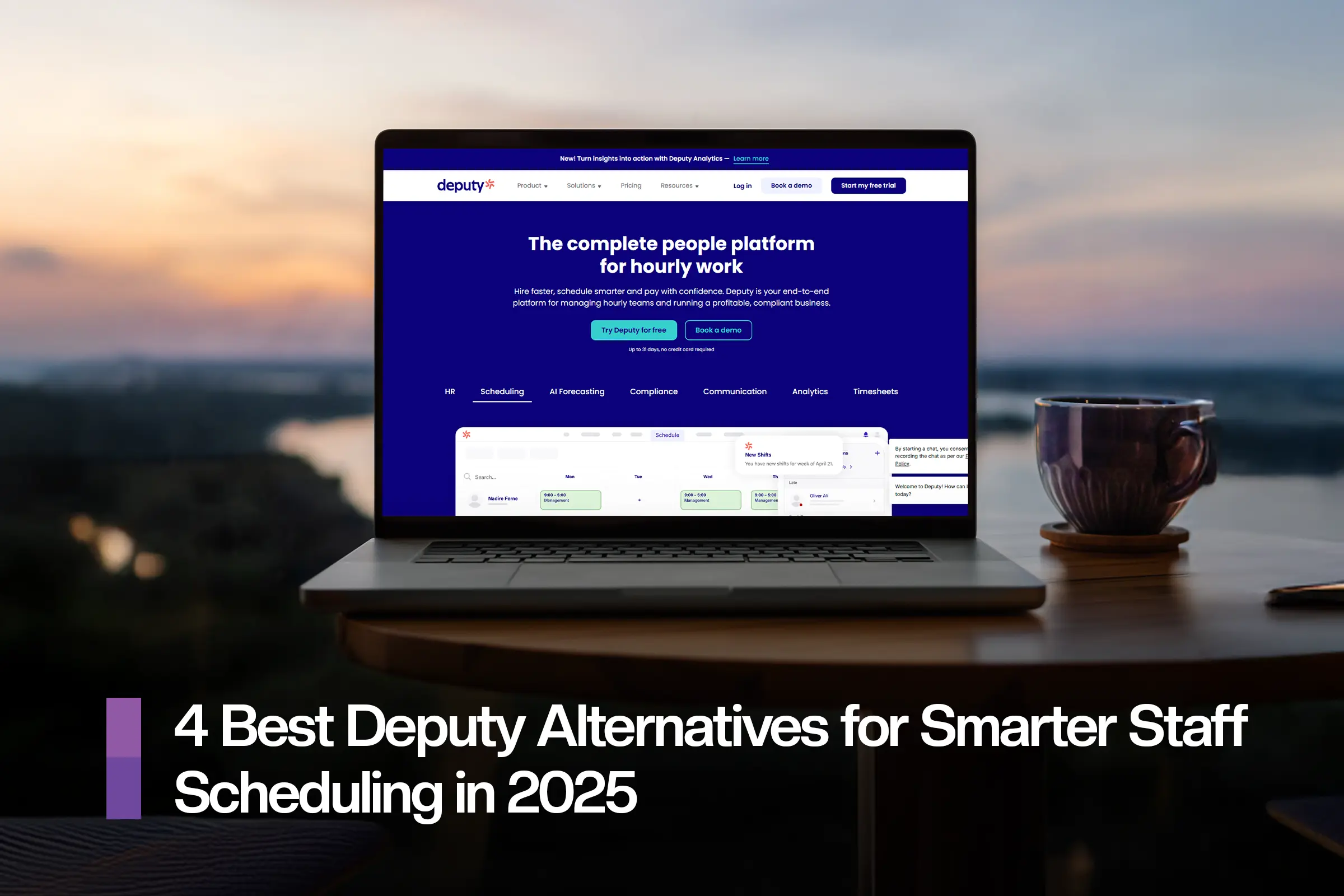Complete Guide to Support Worker Notes Template
Learn how to write professional support worker progress notes. Step-by-step guide with examples and a free downloadable NDIS template.

Progress notes are essential for documenting the delivery of care and support in disability services. For support workers under the National Disability Insurance Scheme (NDIS), keeping accurate and timely progress notes isn't just best practice - it’s vital for accountability, service tracking, and participant safety.
A clear, consistent progress notes template helps ensure that all relevant information is captured and communicated effectively across support teams. If you’re new to writing notes, check out this guide to writing nursing progress notes for step-by-step examples that also apply to support work.
Key Components of a Progress Notes Template
A robust progress notes template ensures that workers consistently collect the right data, every time. Let’s break down each section in detail:
1. Client Information
This section provides clear identification of the participant:
- Full Name - To ensure accuracy in case notes.
- NDIS Number - Required for referencing and audits.
- Date of Birth - Another layer of participant verification.
- Support Plan Reference (if applicable) - Connects the session to the participant’s individual goals or plan.
2. Session Details
Tracks the specifics of when and where support occurred:
- Date & Time of Session - Exact time frames help build a service timeline.
- Duration - Important for billing and care tracking.
- Location - Whether support took place at home, in the community, online, or elsewhere.
- Support Worker’s Name - Accountability for who delivered the support.
3. Support Provided
This is where you describe the actions taken during the session:
- Daily activities (e.g., transport, shopping, cleaning)
- Support tasks (e.g., personal care, medication assistance)
- Skill-building or community access support
- Behavior or emotional support techniques used
Make sure to be task-specific and link actions to support goals wherever possible.
Example:
Assisted John with meal preparation, focusing on independent use of kitchen appliances as part of his skill-building goal.
4. Client’s Response and Progress
This section captures how the participant interacted with the session:
- Level of participation (fully engaged, needed prompting, refused activity)
- Emotional state and behavior
- Physical health observations
- Feedback or verbal comments from the participant
- Any signs of goal achievement or regression
Example:
John appeared confident while using the stove and only required one prompt to turn off the burner. He reported feeling proud of his cooking.
5. Incidents, Risks, or Changes
Include anything unusual, unexpected, or relevant to the participant’s well-being:
- Behavioral concerns
- Environmental risks
- Medical or physical health observations (e.g., fatigue, pain)
- Noteworthy changes in mood or behavior
- Allegations or disclosures (which may also trigger incident reporting)
This section should be completed factually and without assumptions.
6. Next Steps / Follow-Up
Outlines what will happen next:
- Continuation or adjustment of current strategies
- New activities or goals for the next session
- Notes for other support staff or allied health professionals
- Referral or escalation if needed
7. Signatures
Final section to confirm that the information is accurate:
- Support worker’s printed name and signature
- Date of completion
- (Optional) Client or guardian signature
Best Practice Tips for Writing Progress Notes
To ensure your documentation is effective and professional, follow these tips:
Use Objective Language
Describe only what you observed or what was reported to you. Avoid interpretations or assumptions.
- Do: "The client appeared upset and was crying."
- Don’t: "The client had a breakdown."
Be Specific and Detailed
Vague statements reduce the usefulness of the note. Replace general terms with specifics.
- Do: "Assisted with showering and dressing. Client needed minimal support with hygiene tasks."
- Don’t: "Helped client with routine tasks."
Keep Notes Timely
Write notes directly after each session, while the details are still fresh. This helps avoid missing important context.
Respect Privacy
Never include unnecessary personal or medical details not relevant to the session. Ensure notes are stored securely.
Why Progress Notes Matter
Progress notes serve multiple critical purposes:
- Evidence of Support Delivery: Verifies that services were provided in line with the participant’s plan.
- Continuity of Care: Helps other support workers understand client needs and progress.
- NDIS Audit Readiness: Ensures you can show how funding has been used and support delivered.
- Risk Mitigation: Documents concerns or risks in case of incidents or complaints.
- Supports Goal Tracking: Allows participants and providers to review progress toward NDIS outcomes. For providers who want ready-made structures, using an NDIS progress notes template ensures compliance while saving time.
Conclusion
In conclusion, keeping accurate and timely progress notes is essential for high-quality disability care and compliance with NDIS standards. With imploy’s powerful tools, such as the integrated progress notes templates, real-time tracking features, and streamlined reporting capabilities, support workers can effortlessly document and manage participant care. imploy healthcare helps providers stay compliant, enhance participant outcomes, and improve service delivery efficiency. By using imploy, you can ensure that every session is tracked with precision, leading to more transparent, accountable, and effective care for all participants.
FAQs
Q: Why are progress notes so important for NDIS support workers?
A: Progress notes are a critical component of NDIS service delivery. They provide an official record of the support provided, demonstrate that a participant's NDIS funding is being used appropriately, and ensure continuity of care between different support workers. Most importantly, they are essential evidence for NDIS audits and reviews, helping to protect both the support worker and the provider.
Q: What is the biggest mistake to avoid when writing progress notes?
A: The most common mistake is using subjective or judgmental language (e.g., "the client was difficult"). Notes should always be factual, objective, and based on observable evidence (e.g., "the client verbally declined support on three separate occasions"). Another major error is failing to write notes promptly after a session, which leads to forgotten details and inaccuracies.
Q: How can Imploy's software help with writing progress notes?
A: Imploy simplifies and streamlines the entire process. Our platform provides customizable, digital progress notes templates that are pre-configured with the key components you need (client info, session details, support provided, etc.). This ensures consistency, saves time, and guarantees that no critical information is missed. Support workers can complete notes directly from their mobile device immediately after a session.
Q: We're worried about compliance. How does Imploy ensure our notes are audit-ready?
A: Imploy is built with NDIS compliance at its core. Our templates are designed to capture all necessary information for auditing. Furthermore, every note is:
- Time and date-stamped automatically.
- Linked directly to the participant's plan and funded supports.
- Stored securely in a centralized, cloud-based system, creating a perfect audit trail.
This eliminates lost paperwork and ensures you can instantly retrieve any record for an NDIS audit.
Q: Is our client's personal information secure in Imploy?
A: Yes. Security and privacy are our top priorities. Imploy uses encryption for all data, both in transit and at rest. We strictly comply with all Australian privacy laws and the NDIS Code of Conduct. Access to progress notes is controlled through secure login credentials and role-based permissions, meaning only authorized team members can view sensitive information






